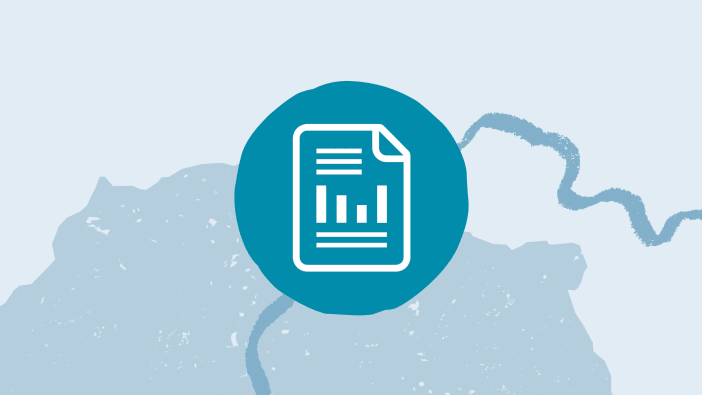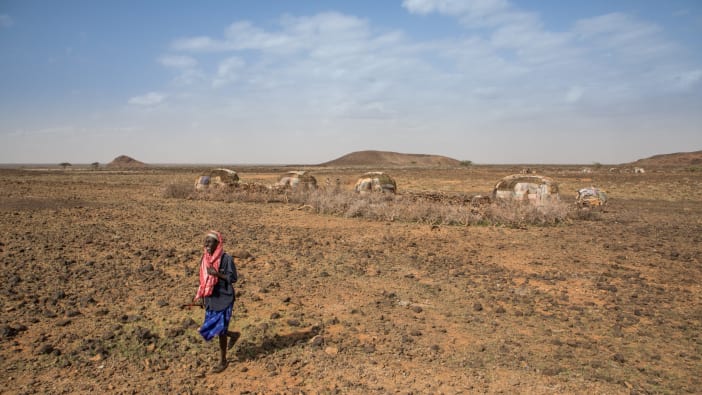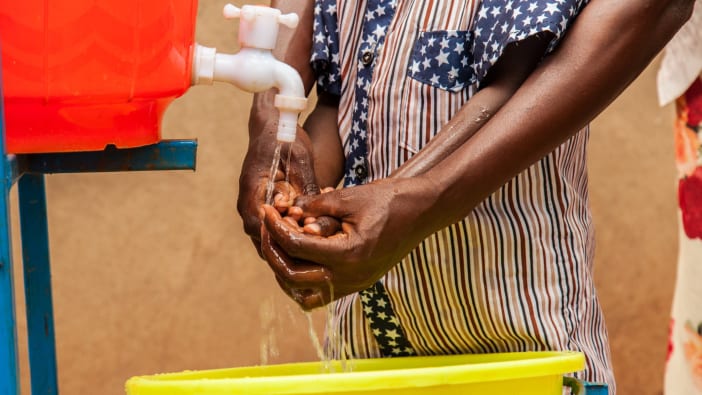Water is essential for life. It makes up about 60 per cent of our bodies, and we can only live three to five days without drinking.
Posters
Are you thirsty?
We need to drink plenty of water to keep us in good health
Written by Allison Liu 2023 Available in English, Spanish, French and Portuguese
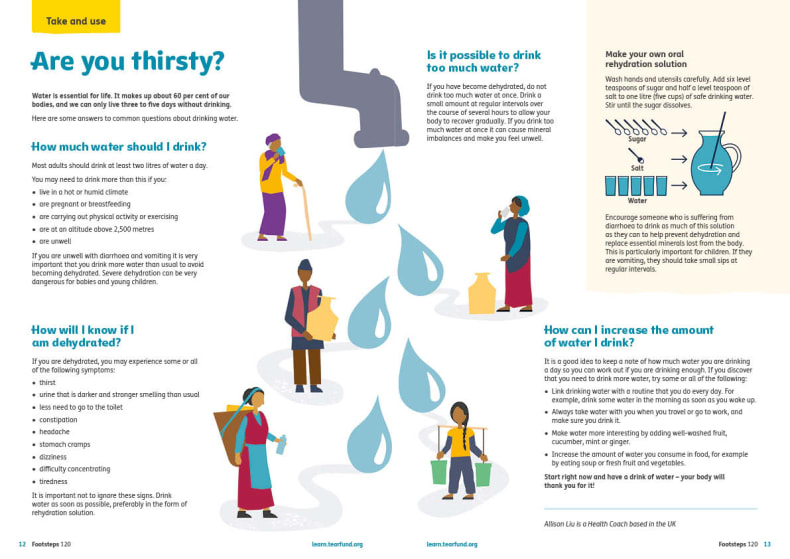

From: Safe drinking water - Footsteps 120
How to value, look after and ensure the safety of drinking water
Download resource
Other languages
Here are some answers to common questions about drinking water.
How much water should I drink?
Most adults should drink at least two litres of water a day.
You may need to drink more than this if you:
- live in a hot or humid climate
- are pregnant or breastfeeding
- are carrying out physical activity or exercising
- are at an altitude above 2,500 metres
- are unwell
If you are unwell with diarrhoea and vomiting it is very important that you drink more water than usual to avoid becoming dehydrated. Severe dehydration can be very dangerous for babies and young children.
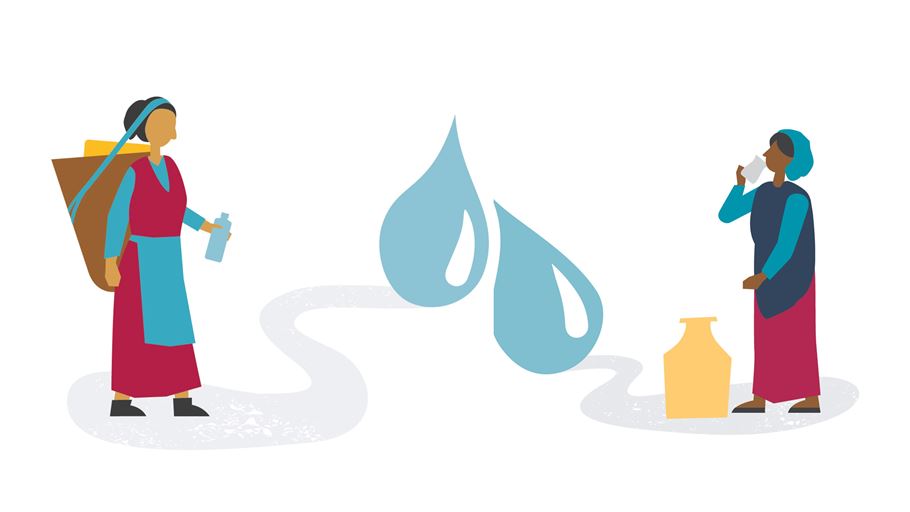
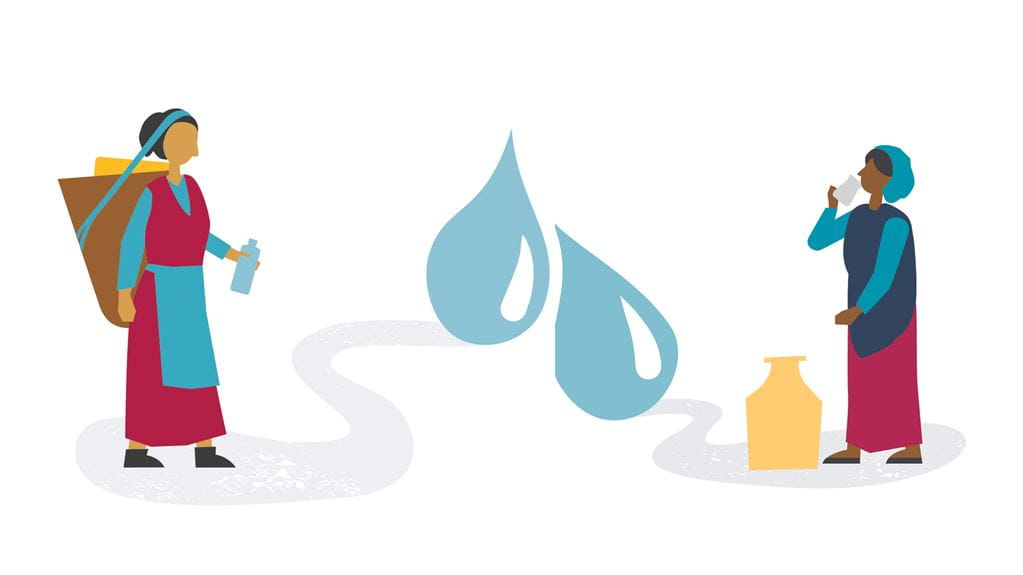
Most adults should drink at least two litres of water a day
How will I know if I am dehydrated?
If you are dehydrated, you may experience some or all of the following symptoms:
- thirst
- urine that is darker and stronger smelling than usual
- less need to go to the toilet
- constipation
- headache
- stomach cramps
- dizziness
- difficulty concentrating
- tiredness
It is important not to ignore these signs. Drink water as soon as possible, preferably in the form of rehydration solution (see box below).
Is it possible to drink too much water?
If you have become dehydrated, do not drink too much water at once. Drink a small amount at regular intervals over the course of several hours to allow your body to recover gradually. If you drink too much water at once it can cause mineral imbalances and make you feel unwell.
How can I increase the amount of water I drink?
It is a good idea to keep a note of how much water you are drinking a day so you can work out if you are drinking enough. If you discover that you need to drink more water, try some or all of the following:
- Link drinking water with a routine that you do every day. For example, drink some water in the morning as soon as you wake up.
- Always take water with you when you travel or go to work, and make sure you drink it.
- Make water more interesting by adding well-washed fruit, cucumber, mint or ginger.
- Increase the amount of water you consume in food, for example by eating soup or fresh fruit and vegetables.
Start right now and have a drink of water – your body will thank you for it!
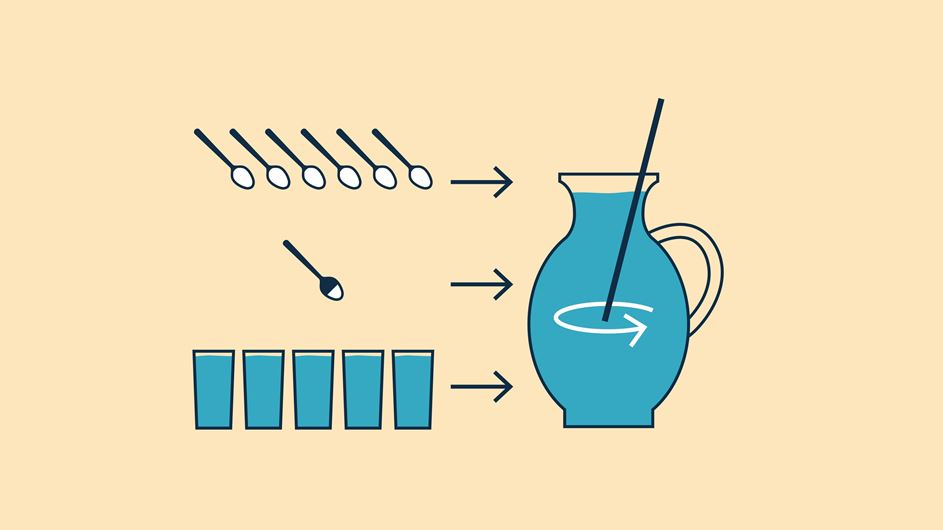
Make your own oral rehydration solution
- Wash hands and utensils carefully.
- Add six level teaspoons of sugar and half a level teaspoon of salt to one litre (five cups) of safe drinking water.
- Stir until the sugar dissolves.
Encourage someone who is suffering from diarrhoea to drink as much of this solution as they can to help prevent dehydration and replace essential minerals lost from the body. This is particularly important for children. If they are vomiting, they should take small sips at regular intervals.
Written by

Written by Allison Liu
Allison Liu is a Health Coach based in the UK
Similarly Tagged Content
Share this resource
If you found this resource useful, please share it with others so they can benefit too.

Subscribe to Footsteps magazine
A free digital and print magazine for community development workers. Covering a diverse range of topics, it is published three times a year.
Sign up now - Subscribe to Footsteps magazine



